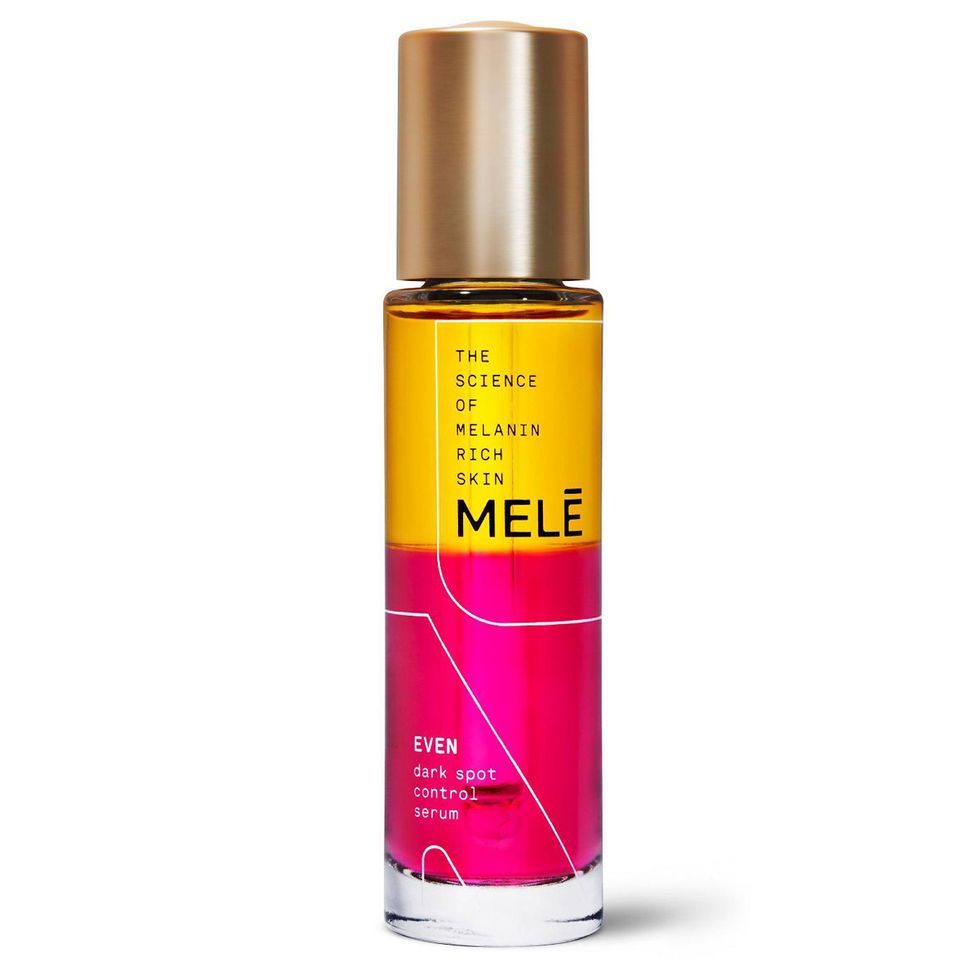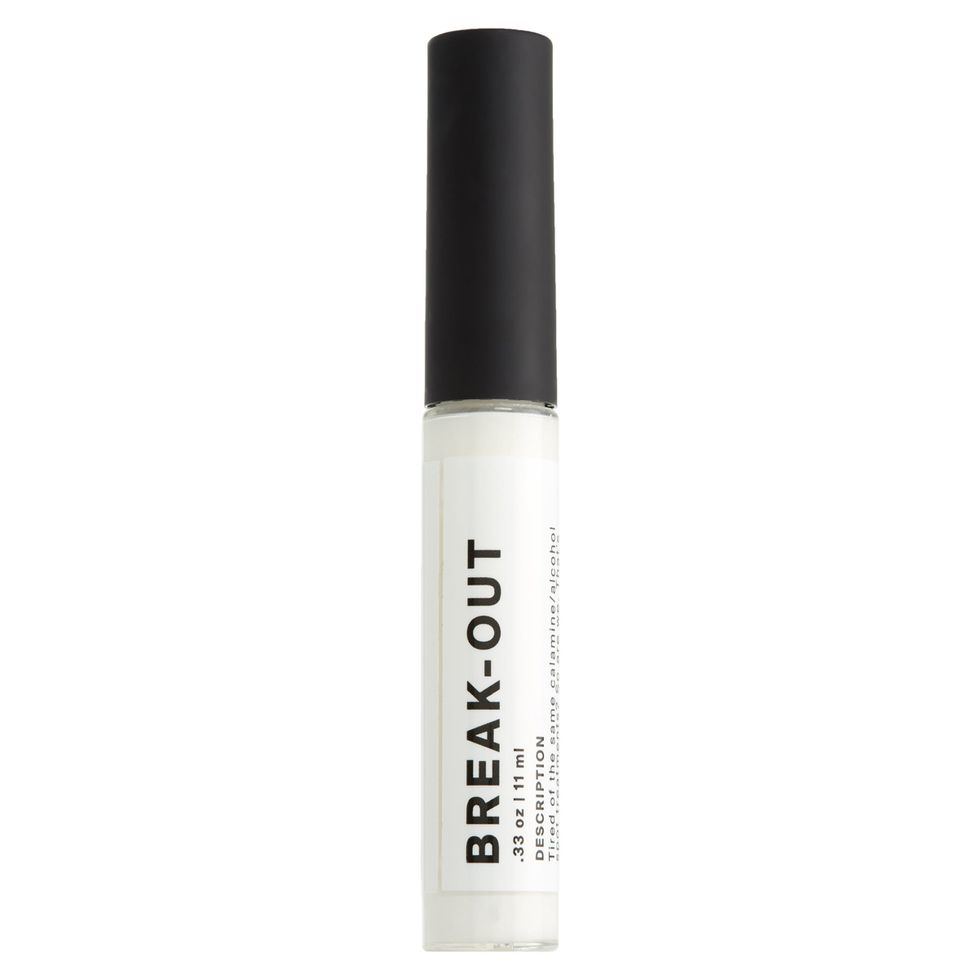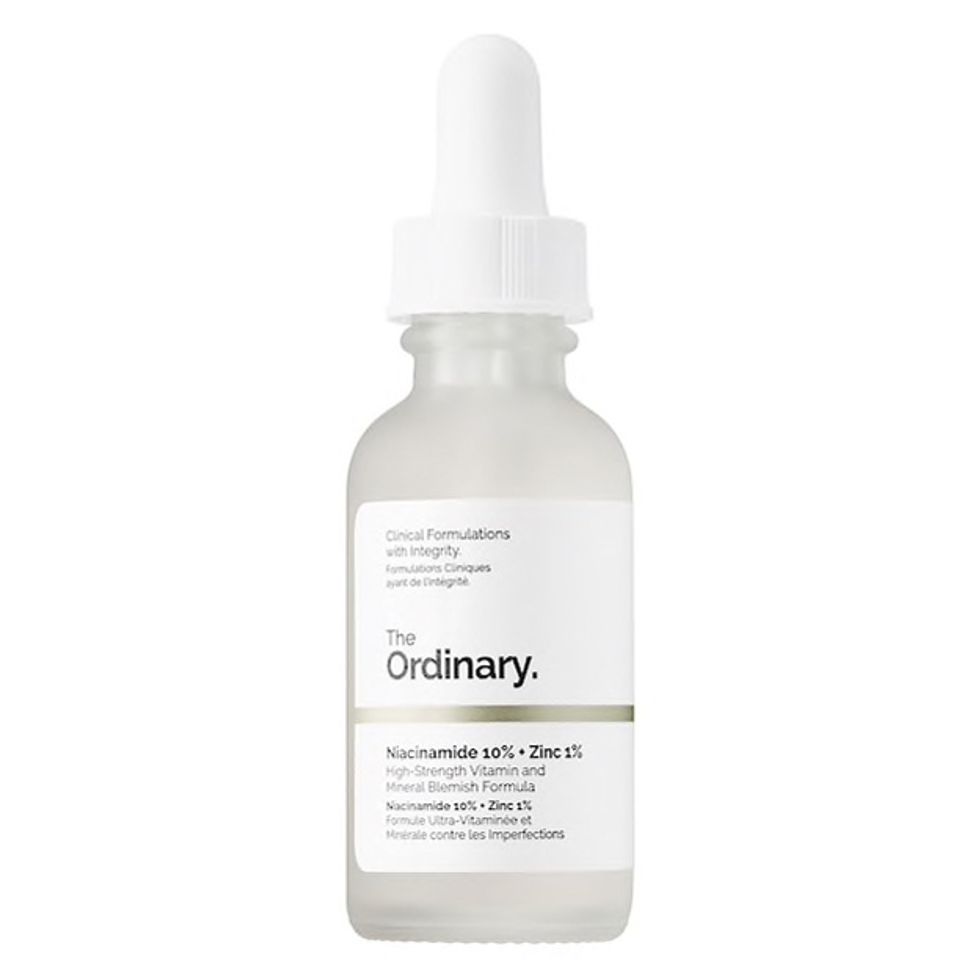How to Get Rid of Dark Spots on Black Skin
With the best ingredients to keep your complexion as even as possible.
If you don't have it already, clear skin and an even complexion are most likely in the top five on your list of skin-care concerns. We're steadily striving to gain control of acne breakouts, bumpy skin, and patches of dry or oily skin, which (unfortunately) happen all year round. While everyone may experience hyperpigmentation—an increased amount of melanin within a certain area—to some degree during their skin journey, for Black and brown people, it is almost inevitable. Typically, when we experience inflammation of our skin—whether from acne scarring, sun damage, or just aging in general—our darker skin tones mean we're more susceptible to producing an excess amount of melanin (and therefore more prominent hyperpigmentation) compared to those with lighter skin tones.
Luckily, there are plenty of treatments that help combat hyperpigmentation, from chemical peels to laser treatments; however, they're not one-size-fits-all, especially for darker skin tones. In fact, many treatments can make our dark spotsworse (particularly lasers), which is why it's always important to chat with your dermatologist to discover the best course for you. A great place to start is with a dark spot corrector, which can lessen the severity of your hyperpigmentation. Unsure of how to find the right one? Keeping reading for a few tips form the experts.
Causes and Prevention of Hyperpigmentation in Darker Skin Tones
The majority of the factors that generate hyperpigmentation in Black and brown skin are typically the same as with lighter skin tones. Board-certified dermatologist and co-creator of MELE Skincare Dr. Mona Gohara explains that common causes of dark spots include ultraviolet light, blue light from computer screens and cellphones, as well as artificial lighting from bulbs. Dark spots occur most often as a result of "post-inflammatory hyperpigmentation," says New York–based esthetician Eden Gilliam, founder of Eve Milan Skincare. "Darker skin tones are more prone to inflammation and inflammatory responses." This typically occurs after any sort of breakout, scratch, or rash that might damage your skin barrier.
Although it is well-known that UV rays and blue light can cause unwanted pigmentation, there has long been a history of belief within Black and brown communities that we are immune to such things because of how much melanin we produce. Since the effects don't show up right away—in terms of a sunburn, for example—those with darker skin tones don't usually take preventative steps. While in the beauty and skin-care realm we're seeing more awareness regarding the importance of SPFs for those with darker skin tones, it's still a common myth throughout that not everyone needs it. "[A good sunscreen] is an often overlooked item that helps to reverse dark spots," explains Gilliam. "You must protect your progress and prevent your dark spots from getting darker in the sun. Black Girl Sunscreen is one of my favorites—and yes, it should be worn in the winter also."
What to Avoid in a Dark Spot Corrector
For people with darker skin tones, it's imperative to know the certain ingredients that can change the shade of your overall pigment and should therefore be avoided. Gilliam recommends staying away from products that contain hydroquinone, a skin-lightening ingredient that slows the production of melanin in the skin. "It causes something called the 'halo effect,' where it leaves a white ring around the area you are treating. It can also give the skin a grey appearance, leaving it looking unhealthy." She also recommends being aware of products containing high amounts of TCA, or trichloroacetic acid, an ingredient often found in topical peels, as it can cause scarring and post-peel dyschromia (aka more uneven skin-tone pigmentation).
What to Look For in a Dark Spot Corrector
Don't feel like you have limited options if you have a darker skin tone—there are a lot of alternatives to the bleaching creams that are just as effective. Dr. Gohara recommends using gentler brightening ingredients on the skin such as antioxidants, retinoids, niacinamide, lactic acid, along with low amounts of glycolic and kojic acid. Gilliam's superstar ingredients for Black and brown skin include daisy extract, sea buckthorn berry oil, turmeric extract, alpha-arbutin, glutathione, and astaxanthin. "These are amazing because not only can you use some of these topically to achieve amazing results but also internally to encourage your body to reabsorb the melanin and discoloration," she says.
If you're ready to switch up your dark spot corrector, check out these products for darker skin tones:
Melē Even Dark Spot Control Facial Serum

Dr. Mona Gohara: "This serum is great to visibly reduce stubborn dark spots and discoloration caused by UV exposure and skin conditions such as acne. The triple-active formula reduces the number and intensity of dark spots and other signs of aging for a more even complexion."
Rosen Skincare Break-out

This spot treatment contains less than 10 ingredients, one of them being peppermint oil, which helps to fight active acne and helps prevent new dark spots from forming as a result of post-inflammatory hyperpigmentation.
The Ordinary Niacinamide 10% + Zinc 1%

A favorite everywhere, this serum is an amazing (and inexpensive) product that helps reduce the visibility of breakouts and scars while brightening the skin to give you that even-toned glow.
How to Get Rid of Dark Spots on Black Skin
Source: https://coveteur.com/2020/09/18/dark-spot-correctors-poc/